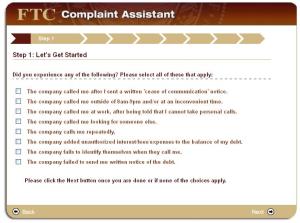
One of the things a debt collector covered by the Fair Debt Collection Practices Act cannot do is threaten to take actions it does not intend to do, or is not permitted to do. One thing debt collectors frequently threaten to do is garnish your income. However, several kinds of income cannot be garnished, and a debt collector cannot threaten to garnish these:
- Social Security Benefits
- Supplemental Security Income (SSI) Benefits
- Veterans’ Benefits
- Civil Service and Federal Retirement and Disability Benefits
- Service Members’ Pay
- Military Annuities and Survivors’ Benefits
- Student Assistance
- Railroad Retirement Benefits
- Merchant Seamen Wages
- Longshoremen’s and Harbor Workers’ Death and Disability Benefits
- Foreign Service Retirement and Disability Benefits
- Compensation for Injury, Death, or Detention of Employees of U.S. Contractors Outside the U.S.
- Federal Emergency Management Agency Federal Disaster Assistance
If debt collectors call you and threatens to garnish your social security check if you don’t pay the debt, they’ve broken the law.
If a debt collector is hounding and harassing you and breaking the law, contact a lawyer. If you or the debt collector are in California and you want to talk to us, drop us a note here.
Walsh & Walsh, P.C., Orange County FDCPA debt collection attorneys.
By Michael J. Walsh




